Setting up and using OKR
Default Successful Point Threshold
OKR system is absolutely not a static combination of goals. In fact, the targets could be set higher than the actual capabilities to encourage breaking the limit. Therefore, the Odoo/ERPOnline OKR app provides 2 types of objectives:
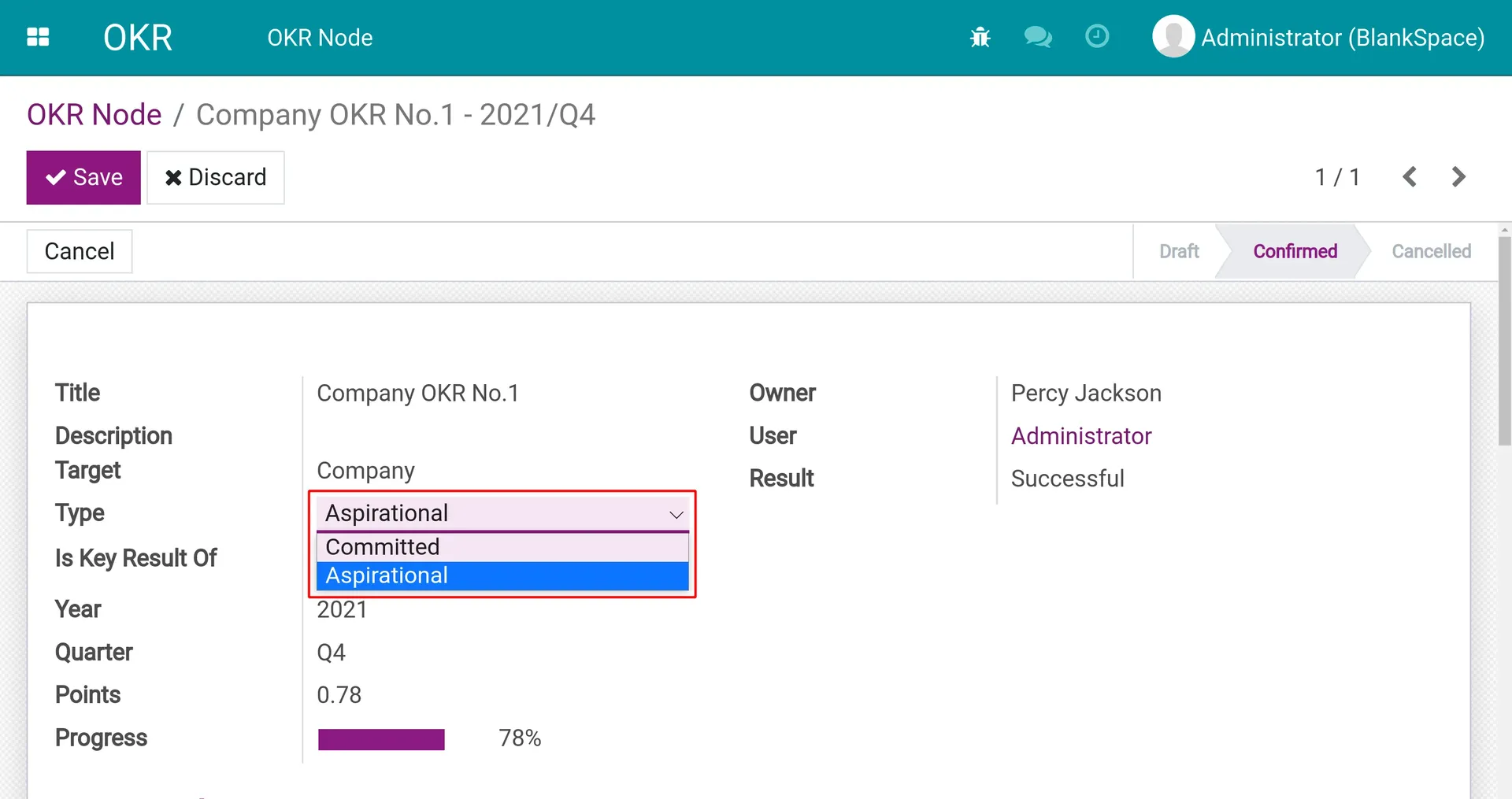
2 types of OKR: Committed and Aspirational with different goals and targets
Committed: As the same as the traditional planning methods, the Committed objectives can only be considered successful if it has been 100% completed.
Aspirational: If you choose this, the success point threshold now is 0.7, or 70% (the status of the node will be Successful if its point is equal or more than 70%). The key results could be much more successful than the expectation.
The OKR app for Odoo v13 doesn't support rearranging the threshold. You can find this feature in the OKR app for Odoo v14 (read more).
Relationship of OKR nodes
Odoo/ERPOnline OKR uses a hierarchy system, in which the result of a parent objective is calculated by its children key results. The children key results could also be an objective containing smaller results, and so on.
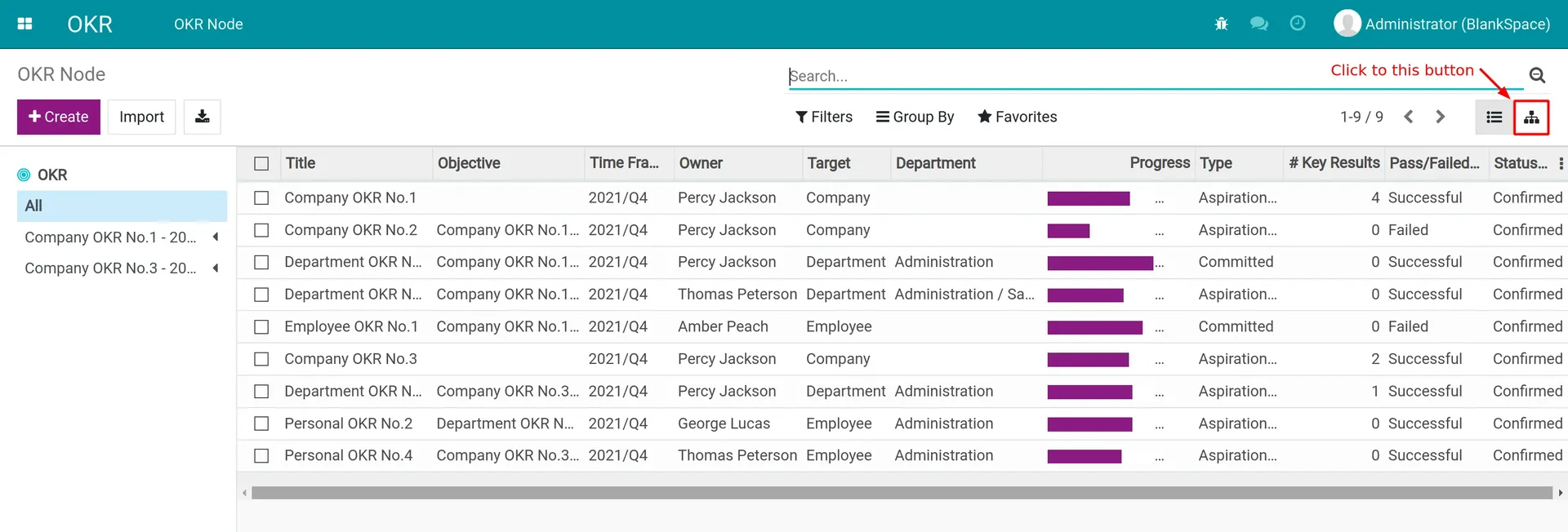
Click on this button to change the view into the hierarchy tree
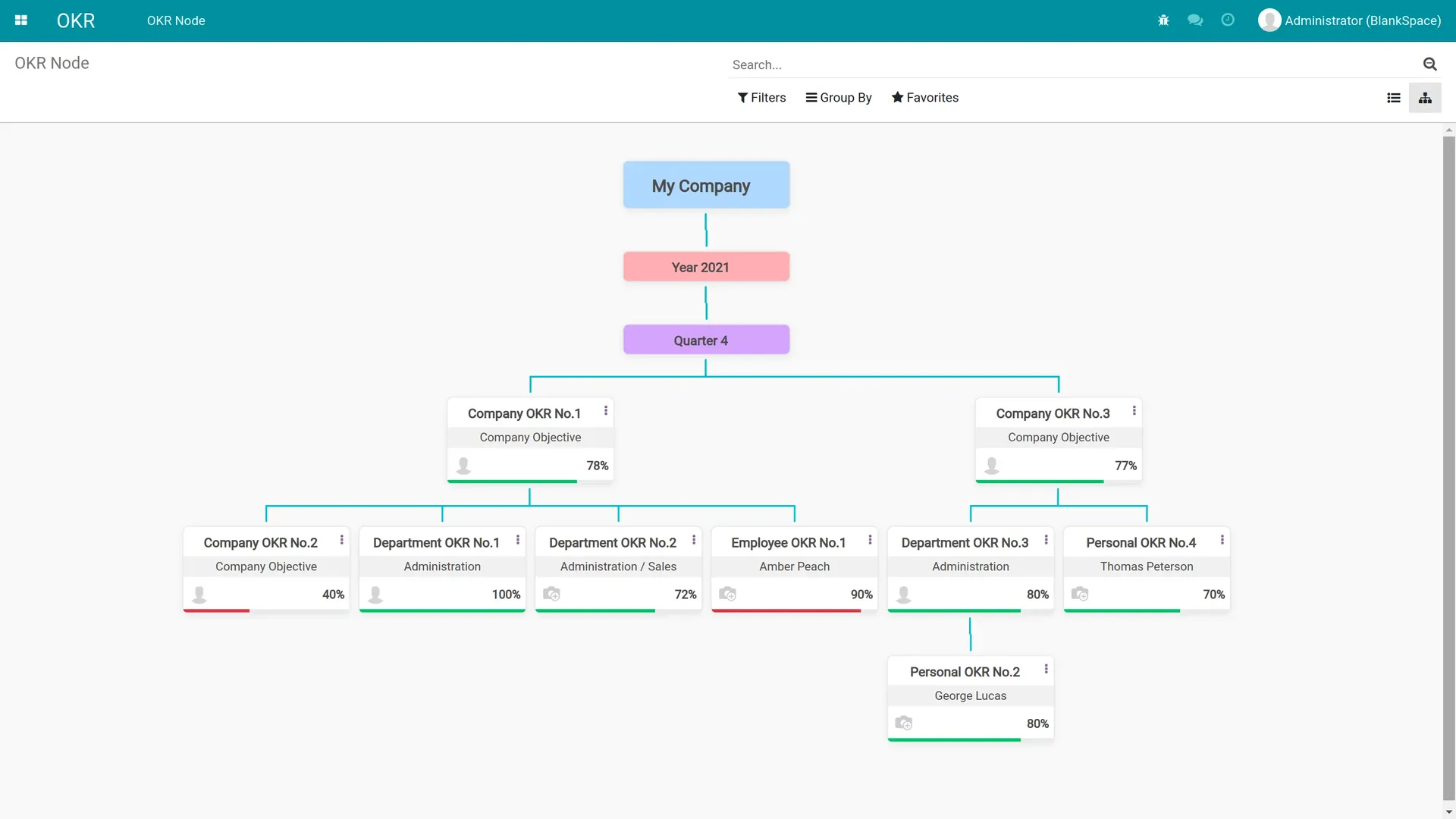
The hierarchy tree of OKR
Setting up a hierarchy OKR tree
To build up a hierarchy OKR tree, first of all, you need to figure out the base objectives for the whole company in a quarter or a year. These objectives need to be set up before any other key result.
Create the base Objective
Access the OKR app > Create. Fill the new OKR form with the data below (noted that, the purple boxes contain the mandatory fields and have to be filled before saving the node):
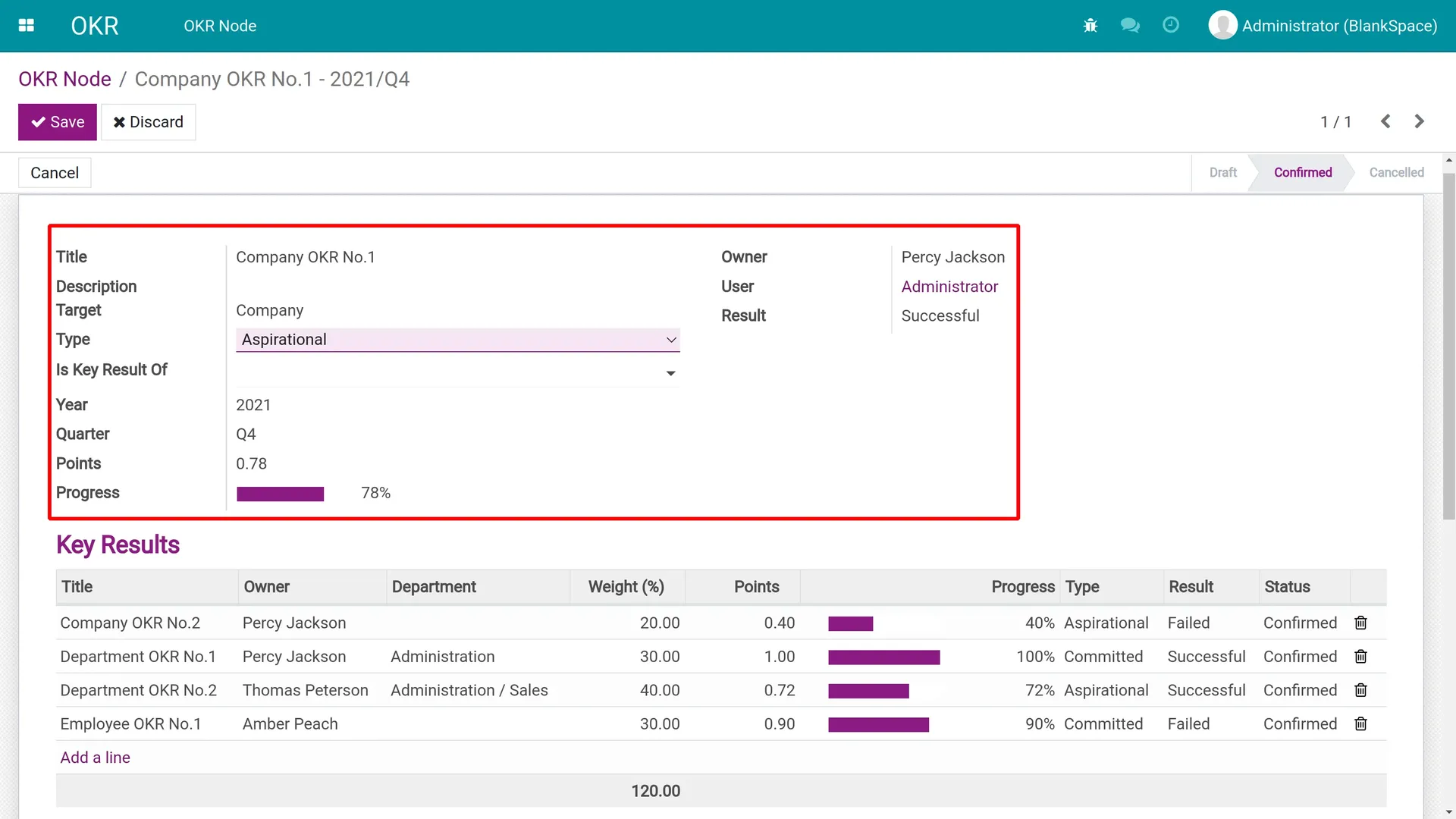
The OKR Node form
Year: The default data is the current year. You can also make a future plan by changing the year.
Quarter: Set the quarter or leave it blank to make the objective cover the whole year long.
Title: The name of the Objective (e.g: Attract 10.000+ new users)
Description: Short description to clarify the point of the objective.
Target: You can choose between "Company", "Department" or "Employee".
Choose the "Company" choice to apply this objective to the company.
If you choose the "Department" or "Employee" as the target, you can appoint a specific department or an employee as the owner of this objective. These ones suit the lower level Key Results that will be set up later.
Is the key result of: Appoint a parent objective for this OKR node. Because this node is the base objective, simply leave it blank.
Points and Progress: You could input the number on the "Points" box, but shouldn't. The result of this OKR node should be automatically calculated by the points of its results by this formula:
The progress of the Objective = ((Key Result 1's points)*(Key Result 1's weight) + (Key Result 2's points)*(Key Result 2's weight) + ...)/(Total weight of all Key Results)
After setting up the base objective, press the Save button. If you want to make the OKR node effective, press Confirm. The state of the node would be changed to "Confirmed" (as in the image above). You should create all the base Objectives that do not relate to each other (e.g: "Attract 10.000+ new customers" and "Build a friendly working environment"). If they do, you should make the lower level Objective to be a Key Result for the higher one, as in the following guidance.
Add Key Results to an Objective
You can add more Key Results for this Objective. First, click the Edit button to turn on the Edit mode. Click on the "Add a line" button, a wizard window will pop up with the following interface:
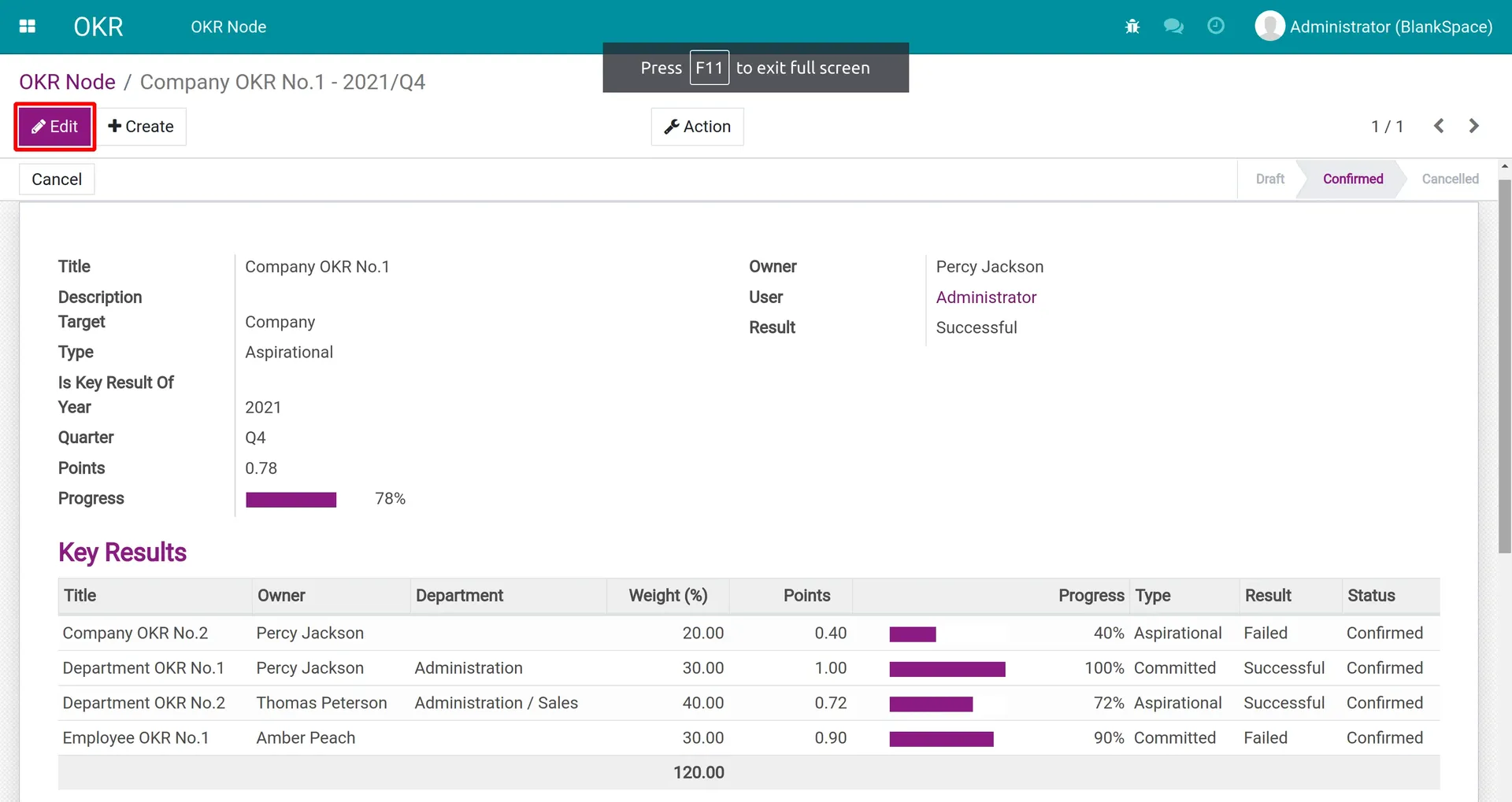
Turn on the Edit mode by clicking on this button...
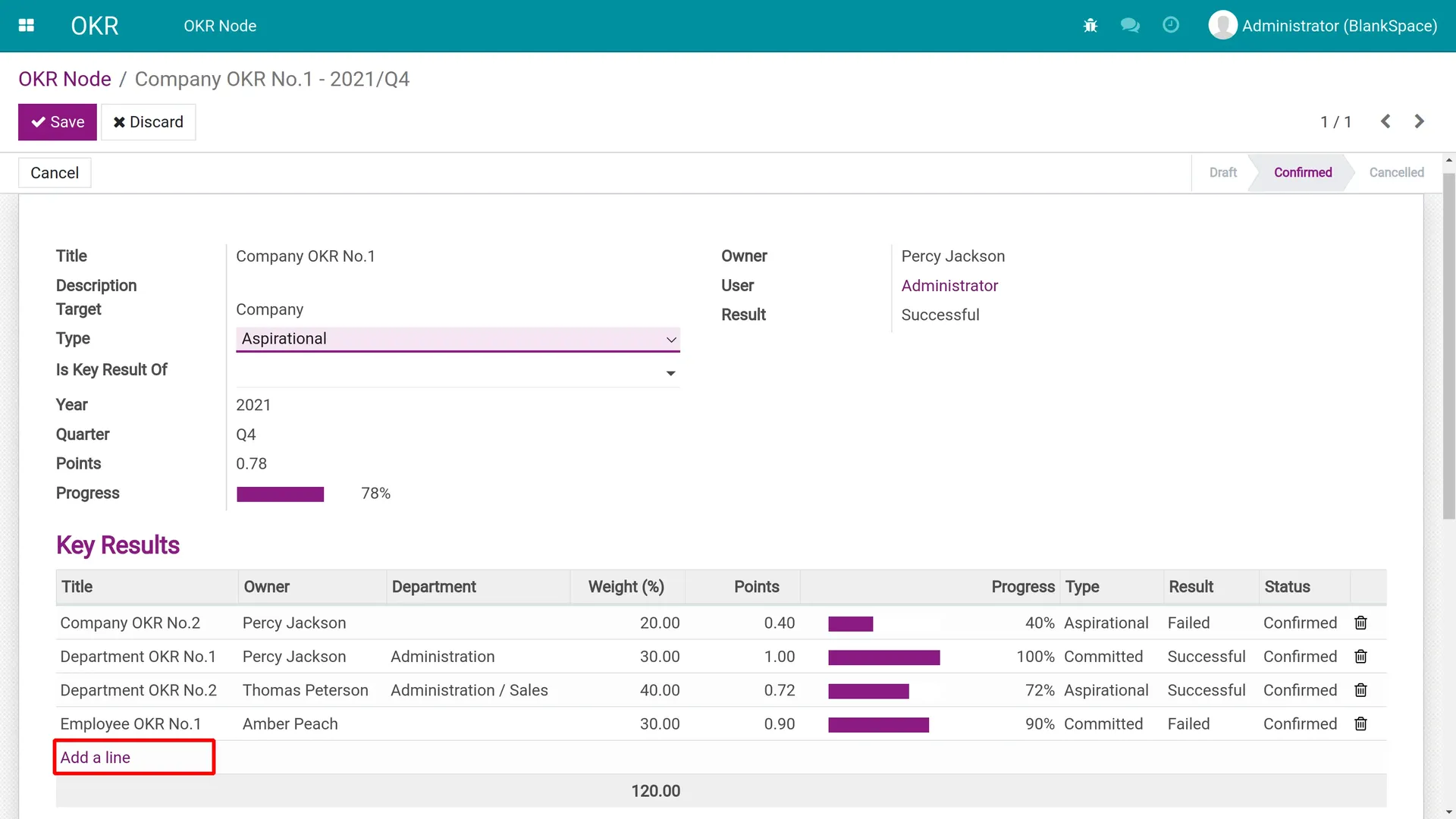
...and click Add a line to set up a new Key Result
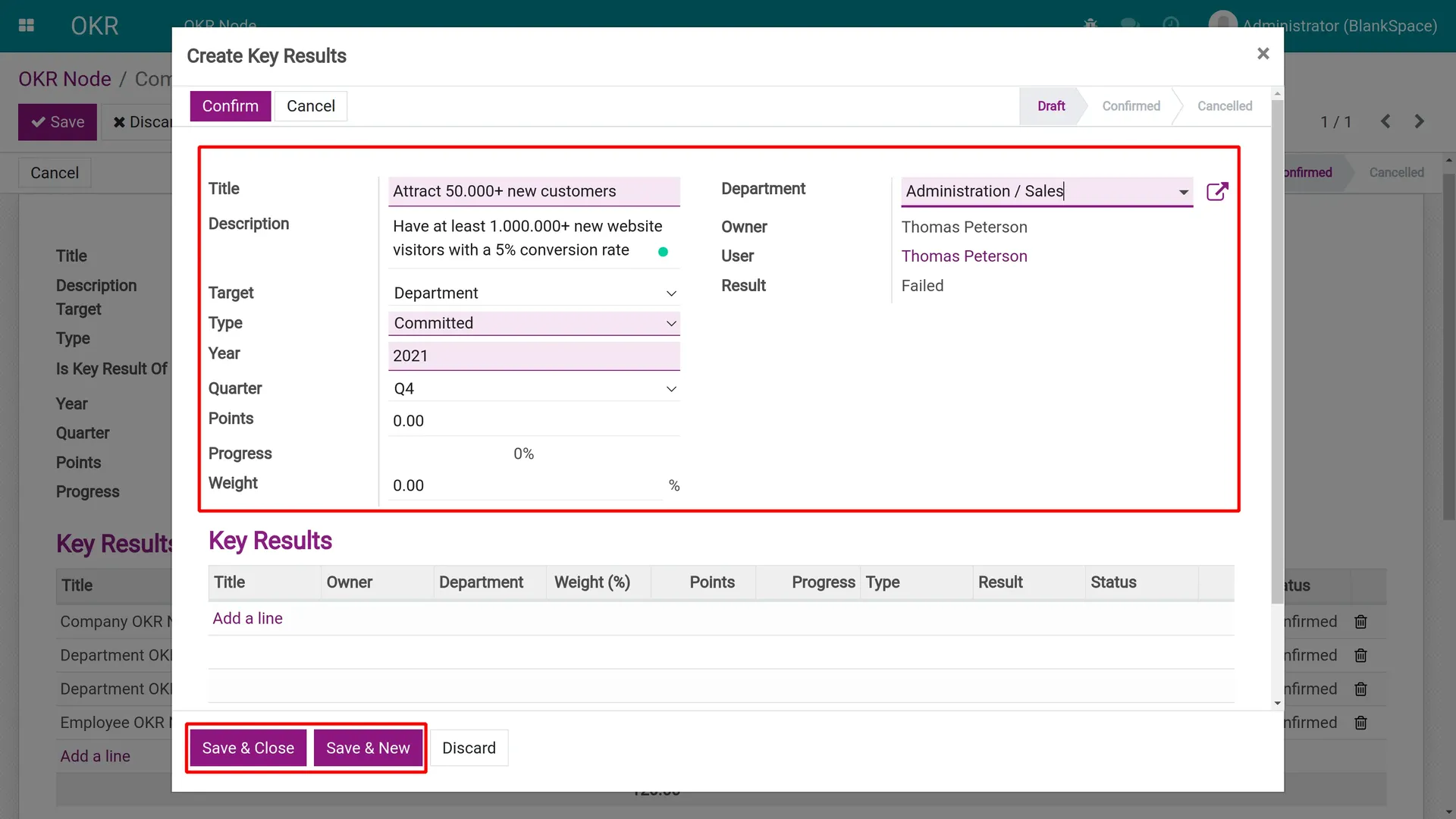
The pop-up window has the same fields as the Objective form. Fill these pieces of information and click on "Save & Close" ("Save & New" instead if you want to create more than one Key Results)
To put the weight on this Key Result, you need to save and close both the pop-up and the OKR node. Turn on the edit mode and the Key Result again, you will find a new field appearing on the pop-up:
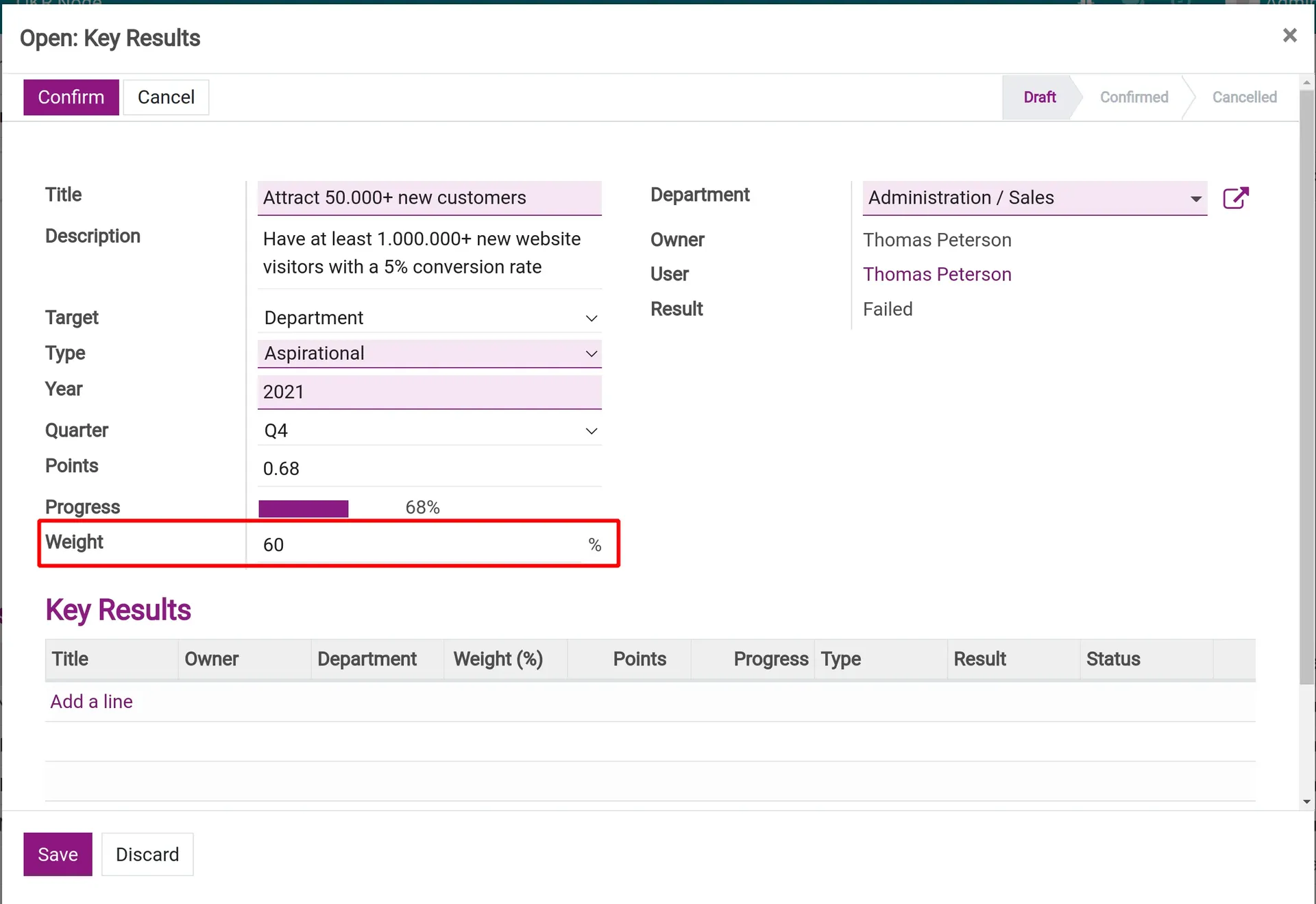
Input a valid weight (more than 0), then click Confirm
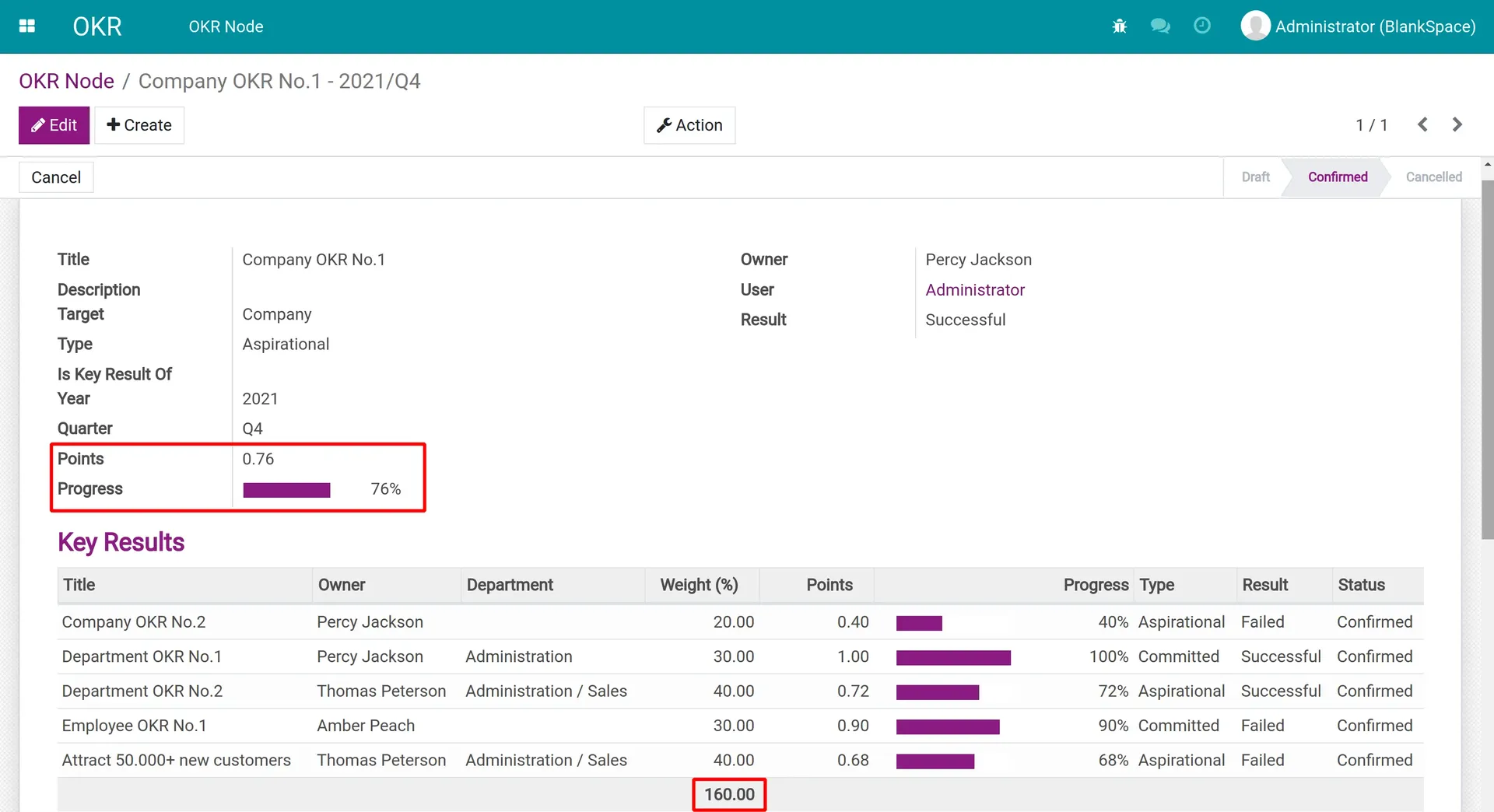
Notice that only confirmed Key Results will affect the final result of the Objective. The total weight could exceed 100% (as in the image is 160%)
After the confirmation, the progress of the Objective would be automatically calculated and shown in the chart like this:
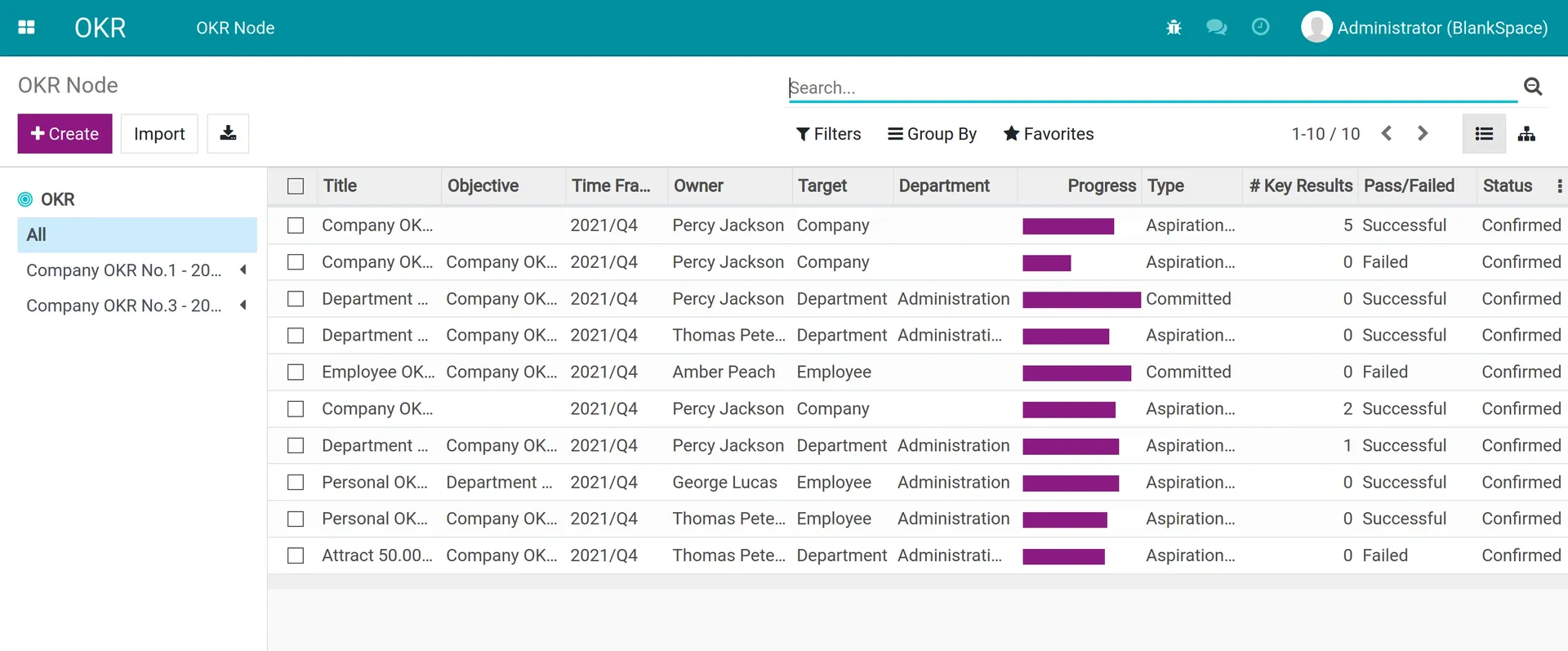
The progressing charts are shown in the default list view
